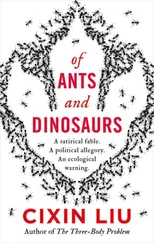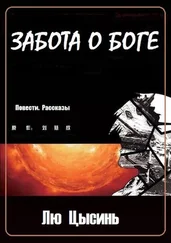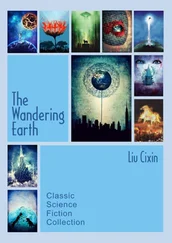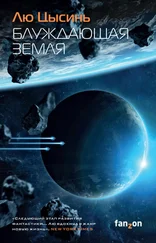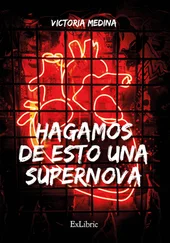“But that inertia is fading. Children are emerging from the hypnotic spell the adults put them under, and when they look at the world with their own eyes, they’ll discover to their delight that it’s a toy.”
“Then what? They’ll play? Play with America?” Davey asked, somewhat surprised at his own question.
“What else can they do?” Vaughn said with a slight shrug.
“How will they play? Football in the streets? All-night gaming sessions?”
They were nearing the memorial’s southern chamber. Vaughn shook his head. “Mr. President, you have a lamentable imagination.” Then he motioned for Davey to enter.
Davey stepped gingerly past the columns into the darkness. Behind him, Vaughn switched on the lights. Once his eyes adjusted to the brightness, he found to his astonishment that he was in a toy world. He remembered that the south wall of the chamber had been covered in a mural done by Jules Guérin, an allegorical portrayal of Emancipation, paired with a depiction of Unity on the north wall of the opposite chamber, but toys were now piled from floor to ceiling, blocking off the wall entirely. More than he could count—dolls, blocks, cars, balloons, skateboards, and more. It was as if he were at the floor of a colorful valley of toys. Vaughn’s voice echoed behind him: “America. This is America. Look around you. Maybe you’ll find some inspiration.”
Davey scanned the mountain of toys, and suddenly one object caught his eye. It lay inconspicuous off to one side, half buried in a gaudy pile of dolls, and from a distance looked like nothing more than a black tree branch. He went over and freed it from the dolls, and a grin broke out on his face. It was a light machine gun. Not a toy.
Vaughn explained, “That’s an FN Minimi, Belgian made. We call it an M249. It’s one of the US Army’s standard-issue light machine guns. Small caliber, uses a 5.56-millimeter cartridge, compact and lightweight, but with a decent rate of fire. Up to a thousand rounds per minute.”
Davey hefted the black barrel, whose metal physicality somehow felt more appropriate than the flimsy toys surrounding him, in a way he couldn’t put into words.
“Like it?” Vaughn asked.
Davey nodded, fondling the smooth cool barrel.
“Then keep it as a memento. A gift from me.” Then he turned and headed back to the central chamber.
“Thanks. I’ve never received a nicer gift,” Davey said, cradling the gun and following after him.
“Mr. President, if my gift has inspired you in the way it should, then I am pleased as well,” Vaughn said lightly. Just behind him, Davey looked up from the gun at his retreating back. He made no sound as he walked, and passed through the shadows of the hall like a wraith.
“You mean… that out of that mountain of toys, I noticed this one first?”
Vaughn nodded. “In that little toy America, you noticed a machine gun before anything else.”
Now they were outside, at the top of the steps. A cool breeze brought Davey to his senses, and he realized the implication behind Vaughn’s words, and shivered involuntarily. Vaughn reached over to take the gun from him, and Davey wondered at how it seemed light as a stick in his withered, seemingly weak arms. Vaughn lifted the gun to his eyes and inspected it in the starlight.
“They are the most impressive works of art humanity has ever produced,” he said. “Embodiments of the animal’s most primitive instincts and desires. Their beauty is irreplaceable. A cold beauty. A sharp beauty. One that grips the soul of every man. They are humanity’s everlasting toys.”
Vaughn pulled back the bolt with a practiced hand and fired three six-round bursts, shattering the silence in the capital, and the chain of shrill explosions made Davey’s skin crawl. Three even tongues of flame issued from the muzzle, the light flickering against the surrounding darkened buildings. Bullets screamed through the night sky as they raced madly over the city, and eighteen casings fell with a pleasing tinkle to the marble steps, the last bars of the whole melody.
“Listen, Mr. President, to the song of the human soul,” Vaughn said, his eyes half closed in reverie.
“Wow—” Davey gasped. Then he grabbed the gun from Vaughn’s hands and stroked its warm barrel in wonder.
A police car came racing round from behind the memorial and screeched to a halt in front of the steps. Three child police officers got out and shone their flashlights upward to the president and secretary of state. Then they exchanged a few words with each other before getting back in the car and driving off.
Then Davey remembered what Vaughn had said. “But that inspiration is… terrifying.”
Vaughn said, “History doesn’t care whether or not it’s terrifying. The fact that it exists is enough. History is for the politician what oil paints are to a painter. There is no good or evil, all that matters is how you control it. There is no bad history, only bad politicians. Now, Mr. President, do you understand your own purpose?”
“Mr. Vaughn, I’m not used to the tone you use, like a teacher addressing a student, but I do appreciate the sense of what you’ve said. As for a purpose, is it any different from the adults’ purpose?”
“Mr. President, I wonder whether or not you understand how the adults made America great.”
“They built a fleet of aircraft carriers!”
“No.”
“They sent a rocket to the moon!”
“No.”
“They built American science, technology, industry, finance…”
“Those are important, but they’re not it either.”
“Then what is it? What makes America great?”
“Mickey Mouse and Donald Duck.”
Davey thought in silence.
Vaughn went on, “In self-righteous Europe, in insular Asia, in impoverished Africa, in every corner of the world, in places unreachable by aircraft carriers, Mickey Mouse and Donald Duck can be found.”
“You mean American culture permeates the globe?”
Vaughn nodded. “The world of play is dawning. Children of other countries and nationalities will play in different ways. Mr. President, what you need to do is to make the children of the world play according to America’s rules!”
Davey took another long moment to think about this, and then he said, “You really have the makings of a teacher.”
“These are just the basics, and yet you feel ashamed already. As you should, Mr. President.” When he finished speaking, Vaughn walked down the steps without looking back and vanished silently into the night.
* * *
Davey spent the night in the Queens’ Bedroom, the most comfortable room in the White House, where Queen Elizabeth I, Queens Wilhelmina and Juliana, Winston Churchill, Leonid Brezhnev, and Vyacheslav Molotov stayed during their visits to the United States. Previously he had slept well on the canopy bed formerly belonging to Andrew Jackson, but tonight he lay awake. He got up and paced the room, stopping at times at the window to look out northward at Lafayette Square, stained blue by the Rose Nebula, and then going to the fireplace, above which hung a floral painting and mirror in a gilded frame (a gift from Princess Elizabeth on behalf of her father King George VI in 1951), to stare at his perplexed face.
He sat down in exhaustion in a mahogany chair and began the longest period of contemplation in his life.
Just before daybreak, the young president stood up and went to a corner of the Queens’ Bedroom where a large video-game machine had been set up. The device paired oddly with the room’s classical décor. He set the machine humming and clanging in an interstellar battle, getting more into it the longer he played, until the sun was high in the sky and his former self-confidence had returned.
Читать дальше
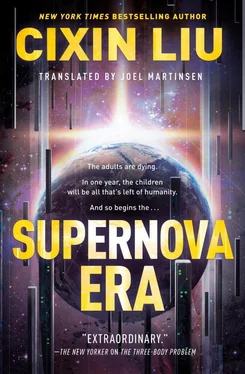
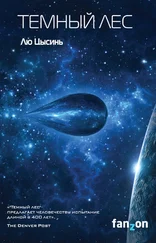
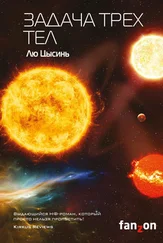
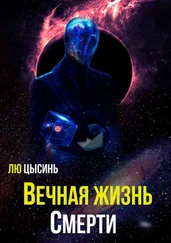
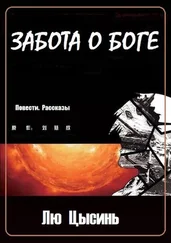
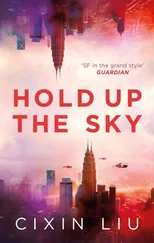
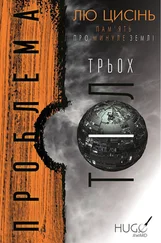
![Лю Цысинь - Эпоха сверхновой [litres]](/books/393110/lyu-cysin-epoha-sverhnovoj-litres-thumb.webp)
